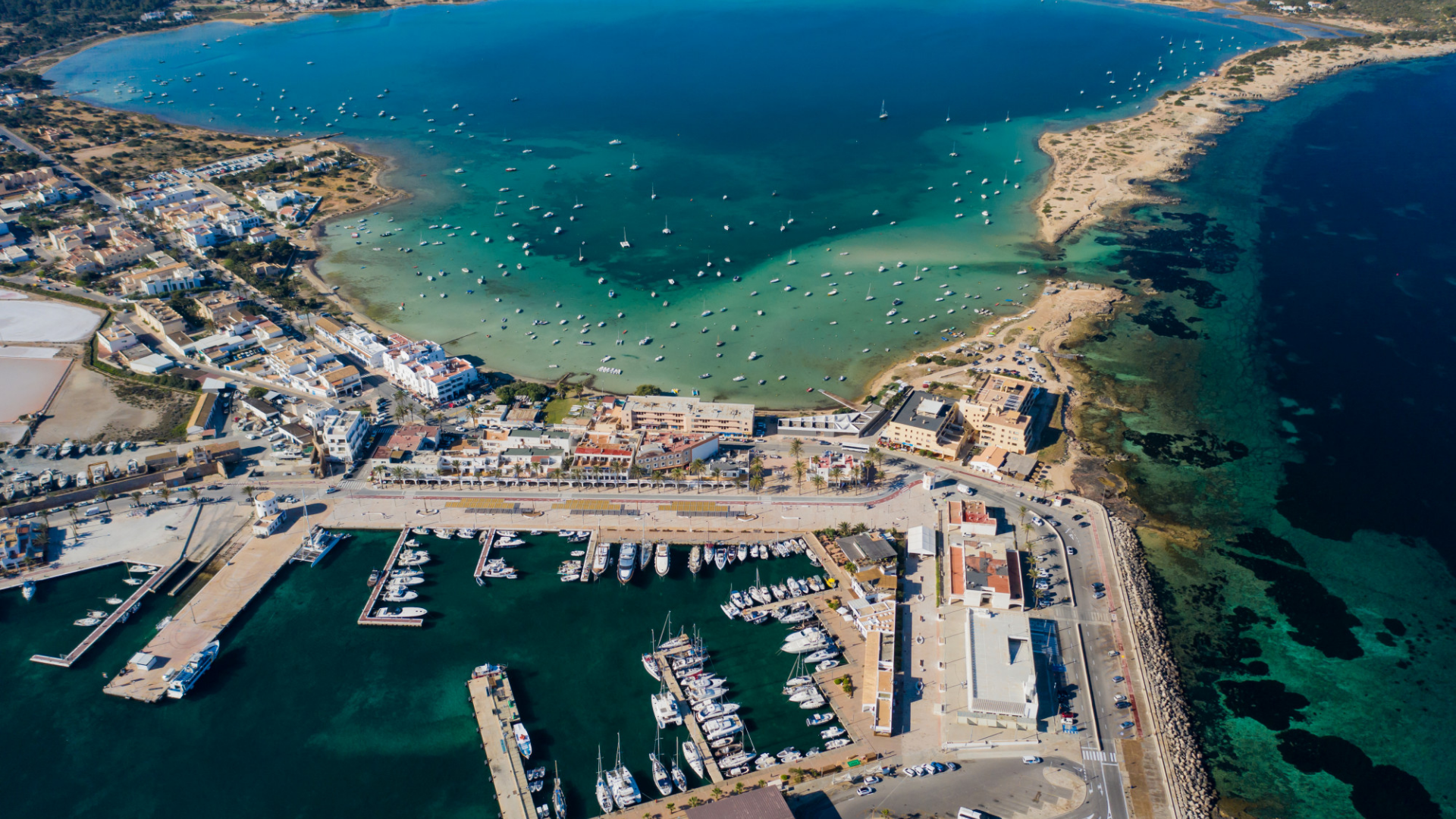Why Choose GMS for Cervical Spine Fixation Surgery in Cyprus?

Leading Surgeons Specializing in Cervical Spine Fixation
Our orthopedic surgeons are experts in spinal surgery, specializing in cervical spine fixation procedures to ensure precise and effective treatment for each patient.

Advanced Imaging and Surgical Tools for Precise Treatment
We use cutting-edge diagnostic and surgical technology to accurately plan and perform cervical spine fixation surgery, minimizing risks and enhancing the precision of the procedure.

Personalized Treatment and Recovery Plans
Each patient is unique, so we offer tailored treatment plans based on your individual condition and recovery goals. We ensure that every aspect of your care is personalized for optimal results.

Full Post-Surgical Rehabilitation to Ensure Optimal Recovery
Our care doesn’t stop after surgery. We provide a comprehensive rehabilitation program to help you regain strength and mobility, ensuring a full and smooth recovery.

Minimally Invasive Techniques
Whenever possible, we employ minimally invasive techniques, allowing for smaller incisions, quicker recovery times, and less post-operative discomfort compared to traditional methods.

Support for International Patients, Including Travel Arrangements
We offer full support for international patients, including assistance with travel arrangements, accommodation, and a seamless process for your entire treatment journey in Cyprus.
Our Cervical Spine Fixation Surgery Options
We offer various cervical spine fixation techniques tailored to individual conditions, such as anterior cervical discectomy and fusion (ACDF) and posterior cervical fusion:
Minimally Invasive Discectomy Surgery
Minimally Invasive Discectomy Surgery removes herniated disc material pressing on nerves or the spinal cord. A small incision and advanced tools reduce tissue damage and recovery time.
Minimally Invasive Disc Replacement Surgery
This procedure replaces a damaged or degenerative disc with an artificial one. The goal is to reduce pain, maintain spinal motion, and restore alignment for improved mobility.
Minimally Invasive Spinal Fusion Surgery
Minimally invasive spinal fusion surgery connects vertebrae to stabilize the spine, reduce pain, and restore function by addressing issues like damaged discs with less recovery time.
Minimally Invasive Kyphoplasty
Kyphoplasty treats spinal compression fractures caused by osteoporosis. A balloon is inserted to create space, and cement is used to stabilize the fractured vertebra.
Minimally Invasive Laminectomy and Laminotomy
These procedures relieve spinal pressure by removing all or part of the lamina. Often paired with discectomy, they enhance surgical access to herniated disc areas.
Spinal Cord Stimulator
A Spinal Cord Stimulator uses electrical currents to block pain signals. A trial device is tested before permanent implantation under the skin for long-term pain relief.
Pathophysiology and surgeries for migraines
Some cases of migraines can be related to spinal issues, and certain surgical interventions can help alleviate symptoms.
Spinal Atrophy Treatment
This treatment targets conditions that cause the muscles around the spine to weaken or deteriorate.
Endoscopic Spine Surgery
Endoscopic Spine Surgery uses advanced fiber-optic technology and effectively treats herniated discs, spinal stenosis, and stable spondylolisthesis with minimal disruption to spine stability. This precise approach reduces recovery time and eliminates the need for extensive incisions or spinal fusion in many cases.
Understanding Cervical Spine Fixation Surgery at GMS Cyprus
Cervical spine fixation surgery stabilizes the neck, often using screws, plates, or rods, to reduce pain, prevent further nerve damage, and improve quality of life.
How To Get A Medical Offer?
SUBMIT A REQUEST
SEND YOUR MEDICAL HISTORY
SEND YOUR MEDICAL HISTORY
FAQ About Cervical Spine Fixation Surgery
Cervical spine fixation surgery stabilizes the cervical spine by fusing vertebrae together using screws and plates, providing pain relief and preventing further injury.
Recovery typically takes 4-6 months, with rehabilitation required to regain mobility and strength.
Pain is managed with medications, and most patients experience significant relief from chronic neck pain once healed.
Risks include infection, nerve injury, and implant failure, but these are rare with proper care.
Yes, we offer a complete rehabilitation plan to help restore mobility and strength.
Yes, we offer full support for international patients, including travel arrangements and personalized care.
Testimonials
After a consultation with Dr. Amir, I was surprised to learn that my health insurance does not guarantee that he will be the surgeon to perform the procedure.
That is when I contacted GMS, who explained how I could have the surgery performed by the physician of my choice - which gave me peace of mind.
It is very important for me to share my experience as the service I received through GMS exceeded any similar experience in Israel:
From the beginning I was assigned a GMS representative from Israel, who explained in detail what my experience would be and answered all my questions about the operation and the treatment process. (Thanks, Roy!)
All I had to do was fill out the application form.
GMS representatives took care of everything themselves!
They contacted the insurance company on my behalf and even had them check the status of the application until the financial commitment for the surgery was received.
We agreed with on the surgical date, booked the flights at a convenient time for me and also dealt with the hotel reservation. The GMS staff even reviewed the menu and took any dietary restrictions into consideration on my behalf.
We were picked up from the airport in Larnaca, Cyprus where we met the wonderful Oria, who accompanied us throughout the entire visit and took care of every detail; from registration to preparation for the operation.
This is essentially a VIP service that made the entire experience relaxed and stress free. The assigned coordinators continued caring after my return to Israel. They were interested in my recuperation post operatively and also ensured all financial matters were dealt with; all this, by the way, without any commissions or payouts on my part, but directly with my insurance. In a word - an amazing experience! In short - I recommend it!
Thank to GMS, thank you Roy, thank you Uriah and thank you Dr. Oron.

I needed a unique procedure which is not performed in Israel and I turned to them.
Over a telephone conversation with GMS representative Roy, I felt caring attention and confidence that he would help in everything. He accompanied us throughout the entire process, before the flight and even after.
In addition to Roy, we would like to sincerely thank Oriya, our allocated Israeli speaking patient coordinator of the company in Cyprus.
Even before our departure, Oriya was in touch with us helping with any issues and made sure that we arrived fully prepared - taking into account the smallest details; even to the point of finding out our food preferences, and despite the late hour of our arrival at the hotel, she ensured an exquisite meal was waiting for us in the room. Oriya greeted us upon arrival and truly made us feel like we were her personal guests. She accompanied us throughout the entire day of the operation - attentively, with endless care and continued patience.
I felt like I had a good friend with me in the hospital. This kind of treatment doesn’t happen very often... At the end of the day we parted, hugging each other, and Oriya gave recommendations on where to go and what to do in the time remaining before returning home.
I just don't have enough words to thank GMS and Oriya for everything. I can only recommend with a reassurance that those who need it should use their services.

Roy – thank you for your patience, quick responses (minutes!), availability, caring and clear explanations! You are inimitable! Oriya - you are amazing! Thank you for every smile, hug, help, guidance, explanation... really! You are simply amazing!
Every time I was asked by friends and family about the surgery, I immediately started talking about your amazing service! I felt warmth and love, and everyone who was with me felt the same! We never stop talking about you, and really, only good things!
You have entered our hearts! Thank you very much for everything! I hope to see you in the future, under different circumstances.






